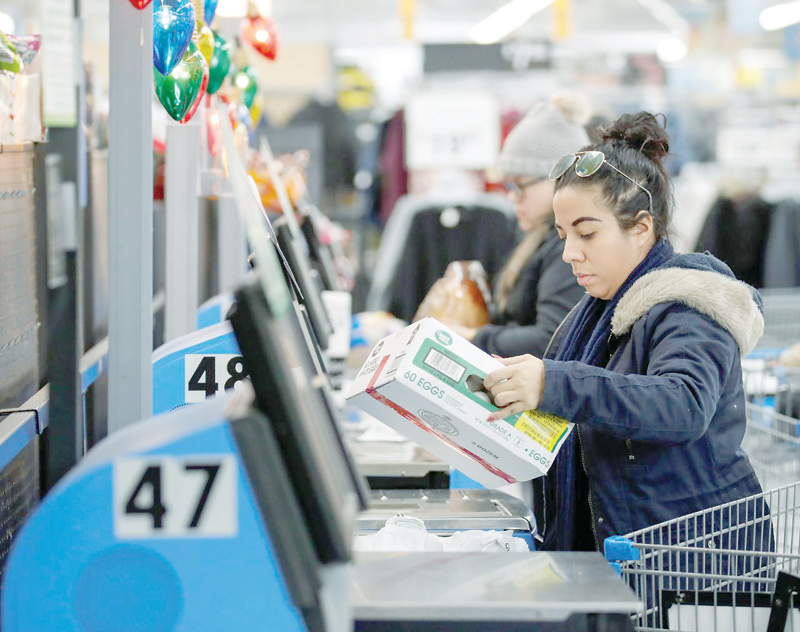

WASHINGTON: US consumer spending increased by the most in seven months in October, but underlying price pressures slowed, with an inflation measure tracked by the Federal Reserve posting its smallest annual increase since February.
The strong consumer spending reported by the Commerce Department on Thursday probably keeps the US central bank on track to raise interest rates next month for the fourth time this year. But moderating inflation, if sustained, could temper expectations on the pace of rate hikes in 2019.
Fed Chair Jerome Powell on Wednesday appeared to signal the central bank is nearing an end to its interest-rate increases, saying its policy rate was now “just below” a level that neither brakes nor boosts a healthy economy.
Powell has faced intense criticism from President Donald Trump, who has viewed the rate hikes as undercutting the White House’s economic and trade policies.
“The Fed will be in a quandary if the deceleration in core inflation persists,” said Roiana Reid, an economist at Berenberg Capital Markets in New York.
Consumer spending, which accounts for more than two-thirds of US economic activity, jumped 0.6 per cent last month as households spent more on prescription medication and utilities, among other goods and services.
Data for September was revised down to show spending rising 0.2 per cent instead of the previously reported 0.4 per cent gain.
Economists polled by Reuters had forecast consumer spending increasing 0.4 per cent in October.
The personal consumption expenditures (PCE) price index excluding the volatile food and energy components edged up 0.1 per cent after increasing 0.2 per cent in September.
That lowered the year-on-year increase in the so-called core PCE price index to 1.8 per cent, the smallest rise since February, from 1.9 per cent in September.
The core PCE index is the Fed’s preferred inflation measure. It hit the central bank’s 2 per cent inflation target in March for the first time since April 2012.
Minutes of the Fed’s November policy meeting published on Thursday showed nearly all officials agreed another rate increase was “likely to be warranted fairly soon,” but also opened debate on when to pause further hikes.
US stocks were trading lower after Wednesday’s rally, which was sparked by Powell’s comments on interest rates. The dollar was little changed against a basket of currencies, while US Treasury prices rose.
When adjusted for inflation, consumer spending advanced 0.4 per cent in October, also the biggest gain in seven months and pointing to a solid pace of consumption early in the fourth quarter.
Despite the strong consumer spending, there are signs that economic growth is slowing. Data this month suggested a cooling in business spending on equipment, a deterioration in the trade deficit as well as further weakness in the housing market.
A separate report on Thursday from the Labour Department showed the number of Americans filing applications for jobless benefits increased to a six-month high last week, potentially hinting at a slowdown in job growth.
Initial claims for state unemployment benefits rose 10,000 to a seasonally adjusted 234,000 for the week ended November 24, the highest level since the mid-May. Claims have now risen for three straight weeks. Difficulties adjusting the data around holidays such as Thanksgiving Day, could have boosted claims. — Reuters
Oman Observer is now on the WhatsApp channel. Click here



